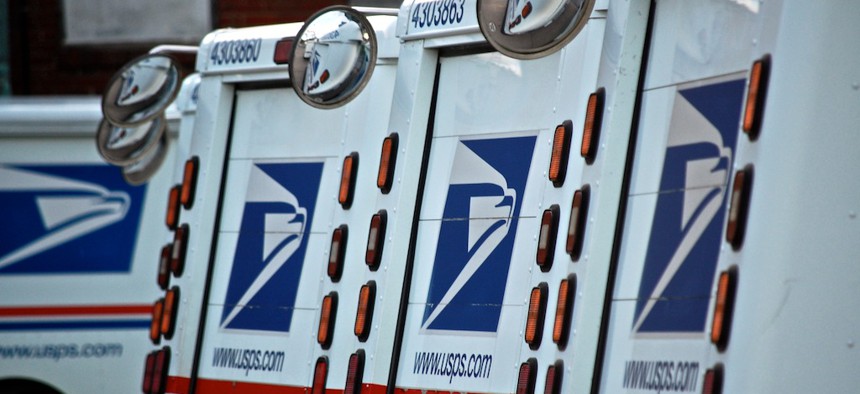
Flickr user vistavision
At USPS, Making Every Mile Count . . . More
Advertising on postal trucks could be one way to raise much-needed revenue.
Earn more or spend less. Those are the two basic ways to achieve financial fitness, whether you’re talking about the household budget or a multibillion-dollar corporate balance sheet.
And that’s what it comes down to for the U.S. Postal Service as it seeks to bring revenue in line with expenses (it lost $5 billion in fiscal 2013). So far, the Postal Service has been looking at cost-cutting ideas like moving to five-day mail delivery, changing employee benefits and consolidating networks.
It’s also been trying to grow revenue, most notably in the package delivery business. But are there some unexplored opportunities to generate income, particularly by taking advantage of one of the Postal Service’s greatest assets—its “last mile” delivery network?
We asked that question in a previous blog entry and explored it in more detail in a recent audit report, “Delivery Operations—Additional Carrier Services.” We came up with nearly two dozen ideas—everything from monitoring services for the elderly and collection of air quality details on delivery vehicles to traffic reporting services and dry cleaning delivery. While these ideas should be explored, most would involve significant financial investments, additional training, and changes to core hours or labor agreements. Also, the 2006 postal law prohibits the Postal Service from offering any new services that aren’t postal in nature.
But the Postal Service could move relatively quickly to add one new, albeit modest, moneymaker: advertising on postal vehicles. The agency has dipped its toe into similar waters by co-branding with Sony Pictures to promote Priority Mail and The Amazing Spider-Man 2 on mail trucks. But it could also sell space on its vehicles to promote products unrelated to mail.
On the other hand, even with all those delivery vans, the Postal Service estimates revenue opportunities would be limited to only about $30 million in fiscal 2015. That’s because advertising would likely be profitable only in densely populated areas and the Postal Service would carefully select advertisers that don’t compromise its trusted brand.
Should the Postal Service look at every opportunity to raise revenue by leveraging its “last mile” delivery force, or should carriers stick to delivering the mail? What about advertising? Would the postal brand be tarnished if delivery vehicles promoted nonpostal products, or is this a worthwhile opportunity to raise much-needed revenue?
The U.S. Postal Service Inspector General Office’s Pushing the Envelope Blog addresses the relevant issues confronting the Postal Service and provides a forum for sharing ideas.
(Image via Flickr user vistavision)






